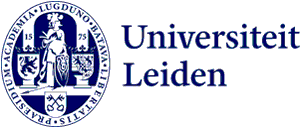
Joining forces for the responsible use of algorithmic systems
The symposium ‘Transdisciplinary Study of Just Public Algorithmic Systems’ in The Hague on Friday 24 March will focus on the use of algorithmic systems in the public sector. A topical subject that has received much attention recently. Five questions about the symposium to one of its organisers, Bram Klievink, Professor of Digitalisation and Public Policy at the Institute of Public Administration.
Klievink: ‘We want to contribute from different sectors, disciplines and perspectives to the just and responsible use of algorithmic systems in the public sector.’
1. Why a symposium on the use of algorithmic systems?
Klievink: ‘The story actually began a year or two ago. From the Leiden-Delft-Erasmus (LDE) collaboration in the field of AI (Artificial Intelligence), we set up an ELSA Lab (Ethical, Legal and Societal Aspects), together with government and civil society organisations and other stakeholders. An ELSA Lab is a place where research is conducted into the ethical, legal, social and economic aspects of technological developments. Our ELSA Lab focuses on AI applications in the public domain. We look, for example, at safeguards, the role of professionals with regard to algorithms and the impact on citizens.
‘There have been many developments within this area. We have had a national algorithm register since last year and an algorithm regulator since just a few weeks. Other parties, such as Kafka Brigade and Waag (Futurelab for technology and society) haven’t been idle either and a variety of research and consultancy projects have been started and sometimes already completed. We thought it was about time we put our heads together and look at where we are and where we want to go.’
2. What do you want to achieve on 24 March?
‘The aim of this symposium is twofold: on the one hand, we will talk a bit about our recent work in a number of short presentations. And on the other hand, we want to start shaping the joint agenda on this topic with the participants. We hope this will further intensify the collaboration. We want to contribute from different sectors, disciplines and perspectives to the just and responsible use of algorithmic systems in the public sector.’

3. This topic requires collaboration with different parties. How will you bring these together at the symposium?
‘We are starting from our current collaboration, between universities, other organisations, businesses and government – from policy, regulation and implementation. All these parties possess knowledge and expertise, implement applications and carry out studies. We want to exchange this knowledge by identifying questions together and becoming more familiar with one another’s strengths.’
4. What can visitors expect?
‘A series of short and interesting talks about ongoing research. No ready-made answers but rather an illustration of how you can look at the same issue in different ways. We also want a discussion with the participants and to create a shared transdisciplinary agenda with the main issues that we want to tackle together. This symposium is the start of a further process, and the result is not yet certain as far as we are concerned.’
5. Who should definitely come to the symposium?
‘Alongside the group of parties that we have been tackling this topic with more recently, it is open to anyone who is interested, from all sectors, as long as they are directly involved in this field or want to start working on it. It is a public issue after all. We plan to hold a few more meetings to further concretise the agenda and form of collaboration.’
Just Public Algorithmic Systems – What does it take?
Friday 24 March 2023, from 14.00 to 17.00 hrs.
Location: Schouwburgstraat 2, The Hague
Read more
